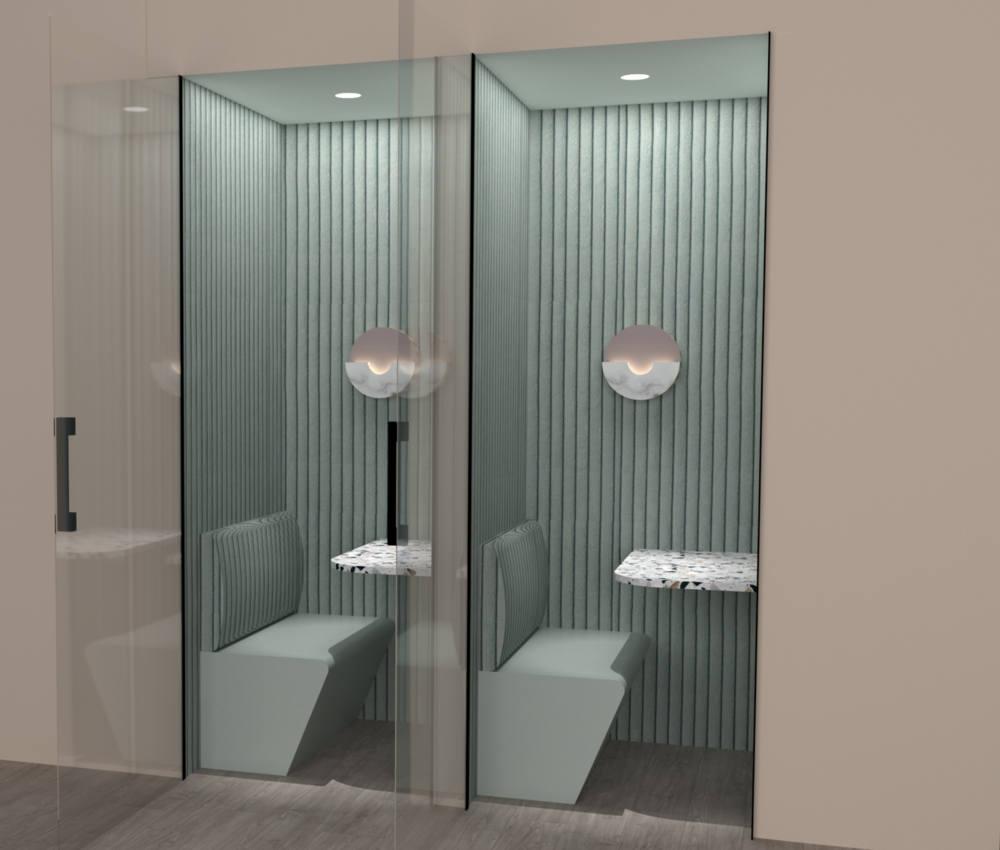By Bond Collective Staff
When it comes to an office lease, the old real-estate adage applies: you don’t always get what you deserve, but you do get what you negotiate.
Finding and securing suitable office space for your company or startup is one of the most daunting challenges you’ll face as a business owner. Signing a contract for a five-year lease is more stressful even than finding investors, estimating market size, or setting up a cap table.
The terms and rate you settle on can have a profound impact on your bottom line — and the ultimate success of your business — for years to come. That’s why it’s vital to get it right the first time.
In this article, we’ll show you the best way to negotiate an office lease so that both you and your landlord are happy.
How To Negotiate An Office Lease
1) Eliminate The Need
The first step to negotiating an office lease is to eliminate your need. If a landlord senses that your back is up against a wall and you’re desperate to find office space right away, the ball is in his court. He now has more leverage to get the terms he wants.
Play the game your way by using a coworking space like Bond Collective to your advantage. With coworking space, you can rent anything from desk space to large offices and conference rooms. You also get lightning-fast internet and other infrastructure necessities that you might have to pay for yourself when you sign an office lease.
By setting up your company or startup in a coworking space before entering into a lease negotiation, you remove the feeling that you have to strike a deal as soon as possible or you’ll be out in the street. That puts the ball firmly in your court and gives you the leverage to get what you need.
And once you experience the benefits of coworking space, you may decide to save money, time, and energy by staying there.
2) Consider Hiring A Tenant Broker
As the name suggests, a tenant broker works with your business to get you the best terms and the best rates possible in your office lease. In essence, the tenant broker acts as your advocate during the negotiations.
They can also serve as a go-between and do much of the time-consuming legwork involved in hammering out the final details. Additionally, a good tenant broker can:
Educate you on current market conditions
Arrange and accompany you on tours
Prepare letters of intent
Just as a real estate agent simplifies buying a house, a tenant broker simplifies finding and securing an office lease that is just right for your business. However, it’s important to keep in mind that you may be responsible for commissions or other fees when working with a tenant broker.
3) Focus On The Total Value
Don’t get fixated on negotiating the lowest monthly rent possible. Instead, focus on the total value (real total cost) of the office lease.
Here are three simple formulas to help you analyze the deal and determine the real total cost.
Annual Cost = Annual Rent + Annual Rent Increases + Taxes
Adjusted Total Cost = Annual Cost x Lease Length
Real Total Cost = Adjusted Total Cost - Free Rent - Tenant Improvement Capital
Armed with this information, you’ll be able to level the playing field and figure out a way to get the best office lease possible.
4) Don’t Show Your Excitement
When negotiating an office lease, it’s always a good idea to play your cards close to the vest. At its most basic, that means that you don’t show how much you like the space. So even if you absolutely love the space and can see exactly where your office would go, play it cool.
If the landlord knows you want what he has to offer, he’ll be more likely to press for terms, rates, and other details that benefit him more than you.
A great way to keep your emotions in check is to secure a “safety net” of sorts. The net, in this case, is a coworking space like Bond Collective. We touched on this in the Eliminate The Need section above, but it works here as well.
Having an attractive coworking space that supplies everything you need while keeping your overhead low can add perspective (not to mention less of an emotional “got-to-have-it” reaction) to your office-lease shopping.
5) Pay Attention To The Lease Terms
The rate is the dollar amount on the office lease you’ll be paying every month. And while it is a critical variable, it’s not the only one (or even the most important one) in the equation.
The terms of the lease — the fixed, non-cancelable period for which the office lease agreement is in force — can actually have a bigger impact on your bottom line than winning a five-percent discount on the rental rate.
Take some time to investigate all the angles and all the long-term ramifications of the terms of your office lease before you get too far into the process. That way, you’ll know exactly where to focus your negotiations so you can win the best office lease possible.
6) Hire A Lawyer To Review The Lease
While tenant brokers have experience negotiating office leases, acting as your advocate, and taking care of all the paperwork, they are still paid on commission. That means they have a vested interest in the value of the final contract.
Take steps to make sure you’re receiving a fair deal. Hiring an unbiased third party — like a real estate lawyer — to review the details of your office lease provides much-needed security and ensures that neither the landlord nor the tenant broker is taking advantage of you.
7) Plan For A Possible Exit
Even before you begin negotiating an office lease, come to terms with the fact that your business isn’t going to be in this space forever. Your startup may fail. Or it may grow and need to expand to a new location. Either way, plan these exits into your final agreement.
Perhaps you agree to a slightly higher rate in order to secure a shorter term with the option to extend. Perhaps you agree to pay a fraction of the rate until a new tenant moves in after you leave.
If you’re unsure what items to include in your office lease, talk to a tenant broker or a real estate attorney.
8) Avoid These Lease Provisions
Negotiating an office lease is all about getting the best for your business. Unfortunately, the landlord approaches negotiations in the same way.
Because of that, he will push for the contract to benefit his business. To do that, he’s going to include stipulations that favor his interests instead of yours. Keep your eyes open during negotiations and avoid provisions like:
Unlimited increases in operating costs, property taxes, repairs, and insurance
Leasing the property “as is”
Disclaiming responsibility for environmental and access issues
Requiring you to pay tax increases that result from the sale of the property
Reserving the right to terminate the office lease at his convenience
Prohibiting the possibility of subletting
Insisting on a personal guarantee from the shareholders of your business
Preventing these provisions from finding their way into your office lease will keep the contract equitable for both sides.
9) Use Data To Drive Your Decision
Commercial real estate is not as transparent as residential real estate, but information on office space is available if you’re willing to research. Tenant brokers can usually give you a general idea about the deals struck in and around the area in which you’re looking. You can also inquire of business associates or search the internet for details.
This data acts as an excellent starting point on which you can base your negotiations. If you know what someone else is paying (and for how long) in a similar location, you’ll know how hard to push to get a favorable deal.
10) Negotiate With Your Needs In Mind
Every business has unique needs. So don’t be afraid to get creative when it comes to negotiating your office lease. Structure the deal in a way that gets you what you want while still giving the landlord what he wants.
Maybe that’s a lower rate for the first year followed by a higher rate for the next two years. Or maybe it’s paying $2 more per square foot so that you don’t have to pay out-of-pocket for renovations.
So identify exactly what you need — and what you’re willing to let go — and then negotiate from that position of strength.
11) Get Creative
We mentioned one way you can negotiate with your needs in mind in the section above — a lower rate the first few years followed by higher rates the next few years — but don’t be afraid to get even more creative with your office lease terms.
For example, maybe your image and the physical appearance of the space is the most important factor for your high-end women’s boutique. Perhaps the landlord will agree to bring the facade and the interior up to your specs if you pay a further $1/foot in rent.
You avoid the out-of-pocket expense of a high-end build out and the landlord receives more money over time.
Or maybe your business just received a round of funding and has plenty of cash in the bank. You might consider trying to negotiate more free rent than is the norm (let’s say eight months instead of four) spread out deeper into the office lease term.
Most businesses want the free rent upfront to give them time to pull in some capital. But, with your plan, the landlord gets rent right away and you can save some money down the road when your business is between rounds of funding.
It never hurts to ask, so don’t be afraid to get creative with the terms of your office lease so both sides come out on top.
12) Don’t Agree To A Restore Clause
One piece of the office lease that many businesses overlook is the restore clause. This small print usually states that the tenant must restore the leased space to its original condition at the end of the term.
The long and short of it is that you are legally obligated to replace worn-out carpeting, paint the walls, and even repair the ceiling, plumbing, and infrastructure — all when your business has already moved and you have no connection to the old space.
It may even mean removing walls and other significant additions — that the landlord gave permission to install — to get the space back to its original condition.
That can take a big chunk out of a bottom line that is already depleted because of the recent office move.
Instead of glossing over the restore clause and thinking it’s no big deal, try to negotiate language similar to the following:
At the end of the term, the Tenant will return the property to the Landlord in the same condition as it was at the beginning of the lease agreement, excluding:
Ordinary wear and tear
Damage by fire, acts of God, and unavoidable casualty that is not the Tenant’s fault
Alterations approved by the Landlord
Modifying the restore clause that is typical of most office leases can save you substantial amounts of money when you’re transitioning from one space to another.
13) Consider Office Sharing Or Coworking
In the world of the office lease, office sharing is sometimes known as subleasing. Here’s how it works based on the formal definition of office sharing:
An arrangement wherein a company that owns or manages a large space rents (subleases) redundant offices to smaller companies.
For example, imagine that a local doctor’s office leases a large space but only uses two-thirds of that space. They might sublease the other one third to a chiropractor, a coffee shop, or even a startup of some sort.
Thus, the doctor’s office shares the space with another business (and vice versa). The doctor’s office makes some money on unused assets (empty space), while the other business gains access to a professional workspace they wouldn’t otherwise be able to afford.
Coworking, on the other hand, eliminates the office lease (or sublease) completely.
Coworking is the use of an office or other work environment by teams or entire businesses, typically so as to share equipment, ideas, and knowledge.
In a coworking environment, you might find a digital nomad working at the same large table as one or two members of a stealth mode startup, a lifestyle entrepreneur, and a freelance journalist, while, nearby, an entire team of 50 works from their own private set of offices.
The concept of coworking extends beyond the physical space where diverse individuals and teams gather, into the realm of shared community based on mutual trust, common core values, and the synergy that comes from working alongside other like-minded men and women.
Both office sharing and coworking are unique ways for businesses to operate without the need for a long-term office lease.
We’ll talk more about coworking later on in this article, but include both office sharing and coworking in your investigations for office space before you commit to a more restrictive office lease.
14) Compare Apples To Apples
When you’re comparing two different office spaces and their respective leases, be sure you’re comparing apples to apples and not apples to oranges.
Real estate lingo is rife with phrases that sound similar but are actually quite different. Usable square footage is one example. Rentable square footage is another.
As a general rule, usable square footage is always less than rentable square footage because the latter includes public corridors, elevators, lobbies, bathrooms, and other common areas.
For example, the rentable space may be 2,000 square feet (including hallways, bathrooms, and two elevators), while the actual usable space that you have to work with is only 1,000 square feet.
The first step in parsing all this is understanding what you’re paying for in your office lease. The second step is comparing the usable square footage of one lease to the usable square footage of another lease — apples to apples.
You can also compare rentable square footage to rentable square footage if that works better for you.
Just be sure you’re not comparing the usable square footage of one lease to the rentable square footage of another lease. That would be comparing apples to oranges, which never works out.
15) Prepare A Letter Of Intent
One of the best ways to start the negotiations for your office lease is to prepare a letter of intent for the Landlord with whom you’re speaking.
A letter of intent states such items as:
Lease rate
Term of lease
Renewal options
Utilities
Parking
And anything else that’s up for negotiation
Consider this your first offer to occupy the space and that negotiation will proceed from there.
Do Your Homework
Even before you contact your first landlord, do your homework. Use whatever resources you have at hand to answer questions such as:
Are other businesses interested in the same space?
Has the space been vacant for a long time?
What is the neighborhood like?
What’s the parking or public transportation like?
Are you building your business for the short term or the long term?
Is the location safe?
Does the infrastructure support the needs of your business?
How much will furniture cost?
Will the rent increase every year?
If so, by how much?
What all is included in the lease?
Who handles repairs?
Who owns the building?
Does the landlord have a say in such matters as to whom you can assign the lease, sublet the space, or sell your business?
When you have all the facts about a particular property, you’ll be better able to negotiate an office lease that’s beneficial for your business.
Avoid The Office Lease Entirely
Finding the right space for your business and negotiating an office lease is no walk in the park.
You can avoid the stress and strain — and the lease — entirely when you base your business in a coworking space instead of a conventional long-term rental property.
With a coworking space, you get benefits such as:
Low overhead
Existing infrastructure
Comfort
Professional image
Flexibility
You’d have to work long and hard to realize just a fraction of those benefits if you tried to negotiate them into an office lease on your own.
But with Bond Collective, you get all that and more.
Each of our shared office environments incorporates inspiring design elements like natural light, open floor plans, vivid colors, and multipurpose workspaces — plus a whole host of other factors that will motivate your team to greatness.
In addition to gorgeous surroundings, every Bond Collective membership comes with:
Comfortable furnishings
Luxurious decor
Private meeting and phone booths
Guest reception and greeting
24-hour access
Mail service
Daily on-site cleaning
On-site kitchens
Custom build-outs
Access to small and large conference rooms
Networking events
Bike storage
Rooftop lounge area
Photo & sound studio (at Gowanus location)
Complimentary fresh fruit
Complimentary beer, coffee, and tea
Weekly warm cookies
Tasty eats and beverages for purchase
Office showers
It doesn’t matter if you’re a team of one or a team of 100 or more, Bond Collective can provide you with the space you need without the stress, time, and constraints of a regular office lease.
So if you’re looking for a spacious, well-appointed office environment that gives your team the freedom and inspiration to work at their best, take advantage of any one of Bond Collective’s many locations in New York, Pennsylvania, Washington D.C., Illinois, Tennessee, and Texas.
For more business advice and to learn about the advantages of coworking spaces for startups, digital nomads, remote workers, and enterprises of all types and sizes, visit BondCollective.com today.







